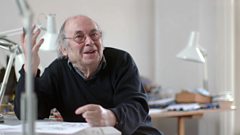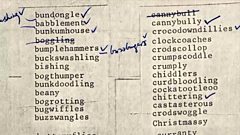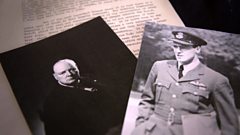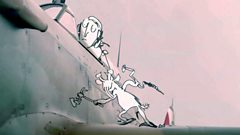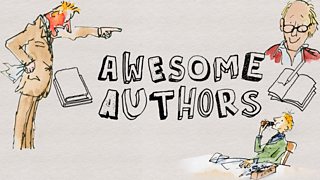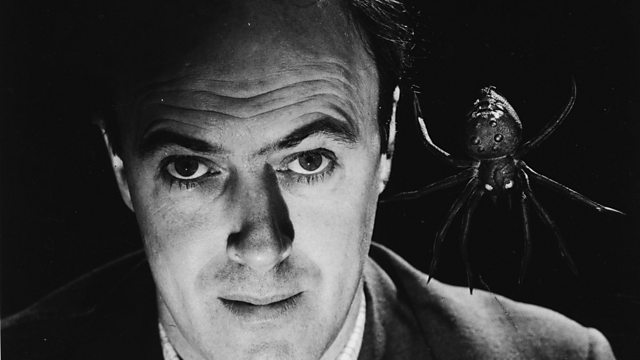
The Marvellous World of Roald Dahl
The story of Roald Dahl's greatest adventures, and how his real-life escapades find expression in his most famous books.
Fighter pilot, inventor, spy - the life of Roald Dahl is often stranger than fiction. From crashing his plane over Africa to hobnobbing in Hollywood, and his remarkable encounters with everyone from Walt Disney to President Roosevelt - this is the story of his greatest adventures, and how his real-life escapades find expression in his most famous books, from Charlie and the Chocolate Factory to Matilda.
Through a vast collection of his letters, writings and archive, the story is told largely in his own words, with contributions from his last wife Liccy, daughter Lucy and biographer Donald Sturrock. Long-term collaborator and illustrator Quentin Blake also creates exclusive new drawings for the film which are specially animated to bring Dahl's marvellous world to life.
Last on
Clips
-
![]()
Memories of Roald
Duration: 03:31
-
![]()
The BFG鈥檚 whoopsy wiffling special language
Duration: 00:36
-
![]()
Roald Dahl the spy?
Duration: 00:55
-
![]()
Gremlins introduced Roald Dahl to the American president
Duration: 00:55
Music Played
-
![]()
John Barry
You Only Live Twice
-
![]()
John Barry
Main Theme/Capsule In Space
Orchestra: The City of Prague Philharmonic Orchestra. -
![]()
Irving Berlin
Isn't This A Lovely Day [To Be Caught In The Rain]?
Singer: Fred Astaire. -
![]()
Eric Chevalier
Everyday Joy
-
![]()
Ralph Vaughan Williams
The Lark Ascending
Performer: Nicola Benedetti. Orchestra: London Philharmonic Orchestra. Conductor: Andrew Litton.
Credits
| Role | Contributor |
|---|---|
| Producer | Andrew Thompson |
| Director | Andrew Thompson |
| Executive Producer | Pauline Law |
Broadcasts
- Sat 23 Jul 2016 20:00
- Fri 5 Aug 2016 23:35
- Fri 30 Dec 2016 17:30
- Thu 13 Sep 2018 20:00
- Fri 14 Sep 2018 03:00
- Sun 24 Mar 2019 19:00
- Boxing Day 2019 15:30
- Tue 21 Apr 2020 23:00
- Mon 23 Nov 2020 22:25
- Tue 24 Nov 2020 02:25
Featured in...
![]()
Awesome Authors—Books
A celebration of children's literature, centred on Roald Dahl's centenary
Behind the scenes: Quentin Blake's revelations of Roald
Producer/Director, Andrew Thompson shares his experience of meeting Quentin Blake.
Quentin Blake on working with a big friendly giant
At his studio Sir Quentin gives a deeply personal insight into working with Dahl.
Roald and Sofie
What does Dahl's correspondence with his mother Sofie tell us about his writing?
